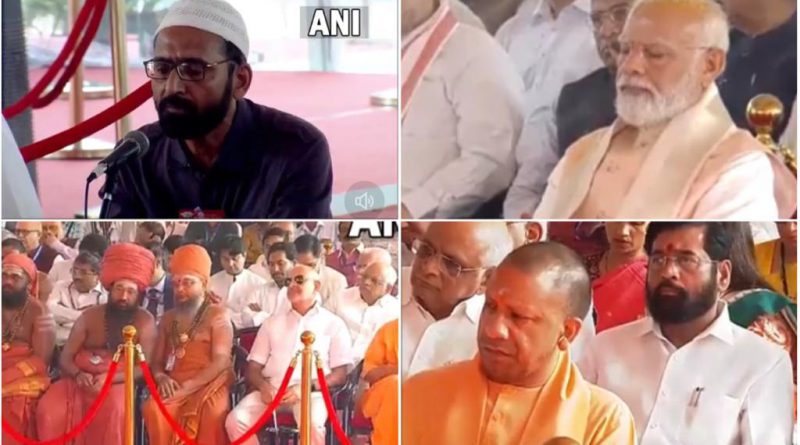Meaning of the Quranic verses recited in the inauguration of India’s new Parliament
New Delhi — Quranic verses were recited as part of the inauguration ceremony of India’s new parliament hosted by Prime Minister Narendra Modi. The recitation sparked interest and curiosity among many non-Muslims to understand the meaning.
The Quranic verses recited were from Surah Ar-Rahman, which translates to the chapter of “The Most Merciful” in English. The recitation began with the phrase “Bismillah-ir-Rahman-ir-Rahim,” which means “In the name of Allah, the most merciful, the most compassionate”. This phrase is commonly recited at the beginning of many Islamic rituals and is a reminder of the importance of mercy and compassion in Islam.
The verses recited specifically were verses of Surah Ar-Rahman. These verses are often recited in times of success and are meant to express gratitude towards God for his blessings. The verses also emphasize the importance of seeking forgiveness and mercy from God.
The meaning of the verses are as follows:
1. The Most Beneficent (Allah)!
2. Has taught (you mankind) the Qur’an (by His Mercy).
3. He created man.
4. He taught him eloquent speech.
5. The sun and the moon run on their fixed courses (exactly) calculated with measured out stages for each (for reckoning, etc.).
6. And the herbs and the trees both prostrate.
7. And the heaven He has raised high, and He has set up the Balance.
8. In order that you may not transgress (due) balance.
9. And observe the weight with equity and do not make the balance deficient.
10. And the earth He has put for the creatures.
11. Therein are fruits, date-palms producing sheathed fruit-stalks (enclosing dates).
12. And also corn, with (its) leaves and stalk for fodder, and sweet-scented plants.
13. Then which of the Blessings of your Lord will you both (jinns and men) deny?
14. He created man (Adam) from sounding clay like the clay of pottery.
15. And the jinns did He create from a smokeless flame of fire.
16. Then which of the Blessings of your Lord will you both (jinns and men) deny?
17. (He is) the Lord of the two easts (places of sunrise during early summer and early winter) and the Lord of the two wests (places of sunset during early summer and early winter).
18. Then which of the Blessings of your Lord will you both (jinns and men) deny?
19. He has let loosed the two seas (the salt water and the sweet) meeting together.
20. Between them is a barrier which none of them can transgress.
21. Then which of the Blessings of your Lord will you both (jinns and men) deny?
22. Out of them both come out pearl and coral.
23. Then which of the Blessings of your Lord will you both (jinns and men) deny?
24. And His are the ships going and coming in the seas, like mountains.
25. Then which of the Blessings of your Lord will you both (jinns and men) deny?
26. Whatsoever is on it (the earth) will perish.
27. And the Face of your Lord full of Majesty and Honour will abide forever.
28. Then which of the Blessings of your Lord will you both (jinns and men) deny?
The recitation of Quranic verses at the inauguration of India’s new Parliament building is a reminder of the importance of inclusion, tolerance, and respect for different cultures and religions. It is a recognition that India is a diverse country with different faiths, and each one of them deserves equal respect and recognition.


